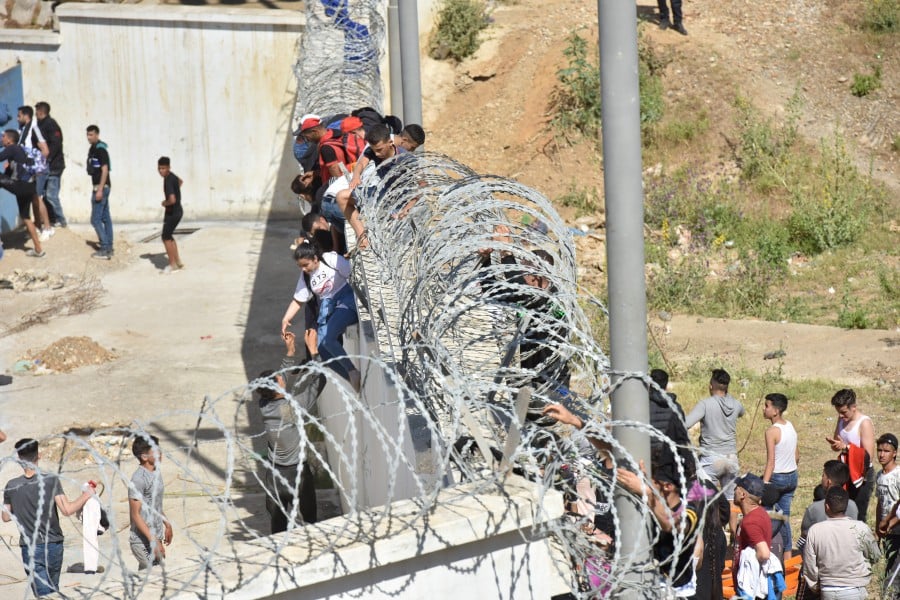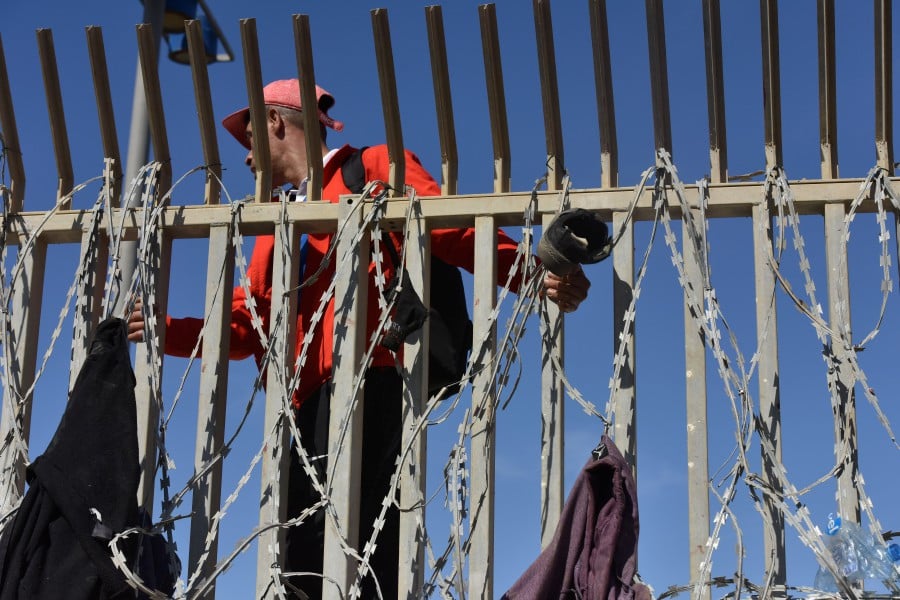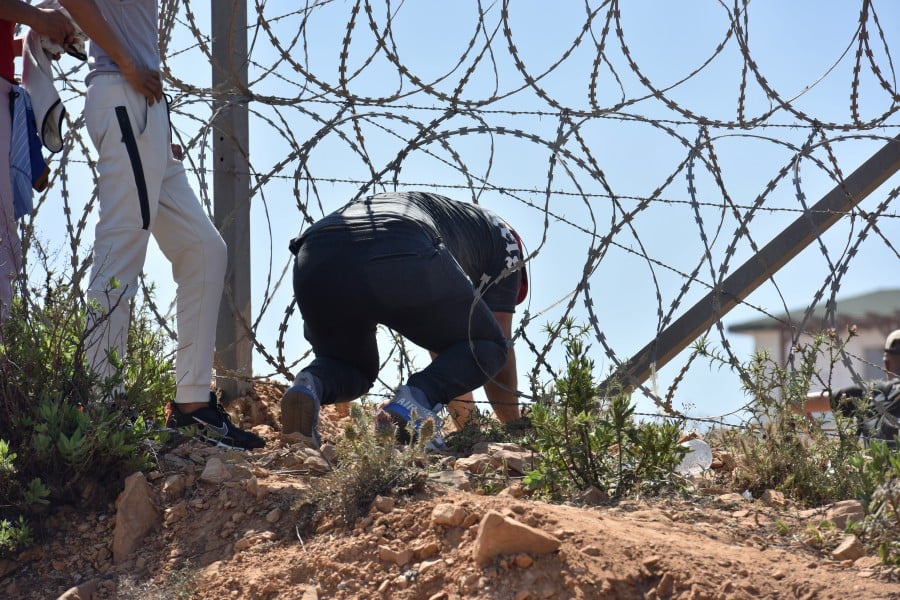
MADRID, May 19 (NNN-AGENCIES) — Spain stepped up diplomatic pressure on Rabat as its prime minister flew into Ceuta, vowing to “restore order” in the North African enclave after a record 8,000 migrants reached its beaches from Morocco.
With diplomatic ties already strained between the two nations over a political spat linked to Western Sahara, Spain’s top diplomat summoned Morocco’s ambassador to express her “displeasure” after thousands of migrants were able to enter the enclave as Moroccan security forces turned a blind eye.
“I reminded (the ambassador) that border control has been and must continue to be the joint responsibility of Spain and Morocco,” Foreign Minister Arancha Gonzalez Laya told a news conference.
Soon after, Morocco’s foreign ministry said it had recalled its ambassador from Spain.
Spanish Prime Minister Pedro Sanchez flew into Ceuta after the record influx which has overwhelmed the tiny peninsula.
“We will restore order in the city and along our borders as quickly as possible,” Sanchez vowed before he was also set to visit Melilla, Spain’s other coastal enclave which lies some 400 kilometres to the east.
Spain’s interior ministry said that nearly 8,000 migrants had arrived in Ceuta since Monday morning, but half that number had already been sent back to Morocco.
It added that Madrid will send an additional 50 police officers to reinforce the 200 already deployed on Tuesday, while another 150 were on standby.
The government said it had set up a system to “streamline” the return of migrants to Morocco that could “operate 24 hours a day.”
“This sudden arrival of illegal migrants poses a serious crisis for Spain and for Europe,” warned Sanchez, who cancelled a Tuesday trip to Paris to attend an Africa financing summit.

Ceuta and Melilla have the European Union’s only land borders with Africa, making them popular entry points for people fleeing poverty and war in Africa.
EU home affairs commissioner Ylva Johansson urged Morocco to act to halt the “worrying” increase in arrivals, while European Council chief Charles Michel voiced solidarity with Madrid, tweeting “Spain’s borders are the European Union’s borders.”
Analysts said it was clear Morocco had turned a blind eye to the human tide surging into Ceuta to put diplomatic pressure on Spain to recognise its sovereignty over Western Sahara.
Most of the migrants had crossed into Ceuta largely unimpeded by Moroccan security forces on Monday, but by Tuesday morning, Rabat had deployed reinforcements at the Fnideq border crossing who fired tear gas to disperse those trying to slip across.

“The situation is much calmer. The Moroccan authorities are blocking their nationals from coming along the beach,” a source at the Spanish government delegation in Ceuta said.
He said the arrivals had stopped by midday, but live footage from Spain’s RTVE public television appeared to show a different reality, with scores of migrants wading through the water.
Early Tuesday, another 300 migrants tried to cross into Melilla by scaling a high barrier, with 86 making it through.
The migrants reached Ceuta by swimming or by walking at low tide from Moroccan beaches a few kilometres to the south, some using inflatable swimming rings and rubber dinghies.
One man drowned en route, Spanish officials said.
Videos on social media showed dozens setting off from rocky outcrops, some wearing just beachwear.
The crisis comes against the backdrop of soaring tensions with Rabat over Madrid’s decision to provide medical treatment for the leader of the Western Sahara independence movement who has been seriously ill with Covid-19.
Rabat was infuriated when news leaked that Polisario Front leader Brahim Ghali had flown to northern Spain in mid-April and was being treated in hospital.
The Polisario Front has long fought for the independence of Western Sahara, a former Spanish colony that is mainly under Moroccan control.
The Moroccan authorities have long wanted Spain to acknowledge their authority over Western Sahara, as Washington did in December under former president Donald Trump, and were using the Ghali spat to put pressure on Madrid.
But Spain’s foreign minister insisted Rabat had “assured” Madrid there was no connection between the migrant surge and Ghali’s presence in Spain. — NNN-AGENCIES





